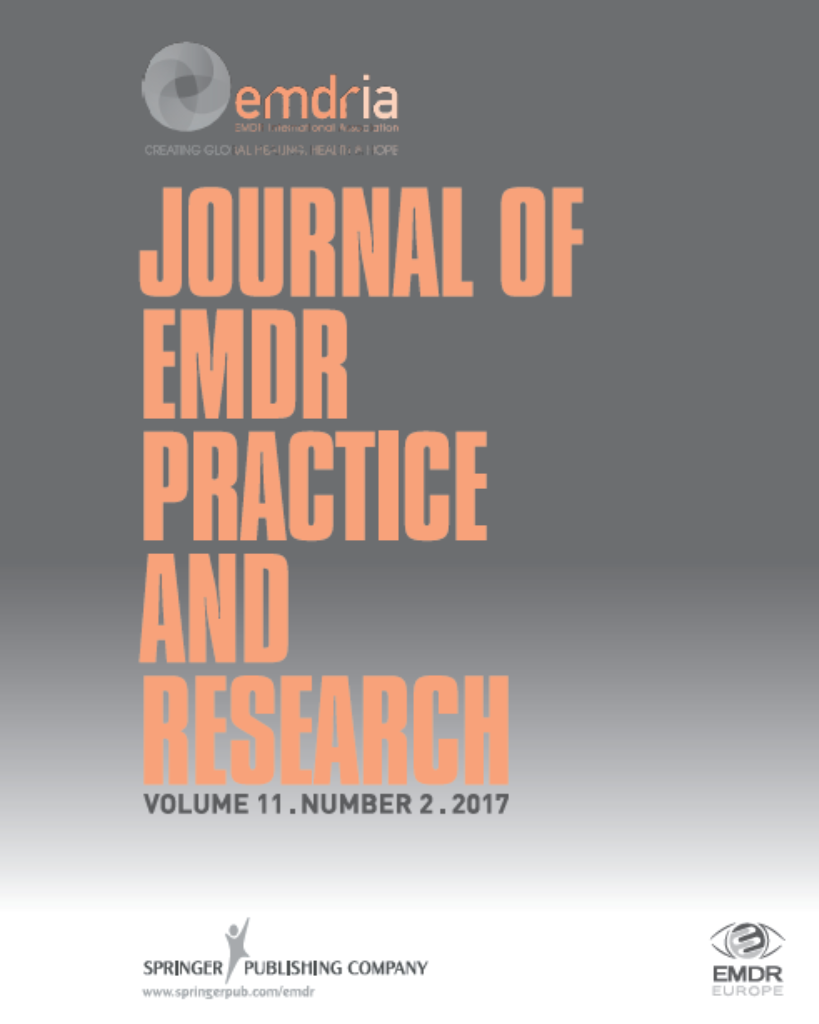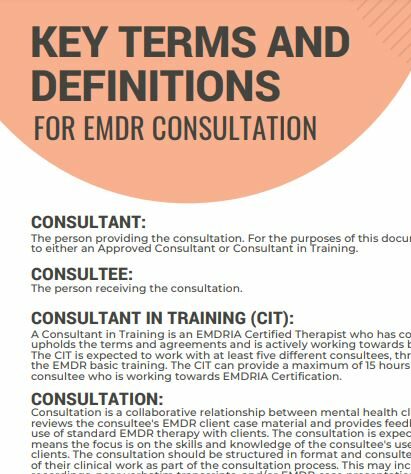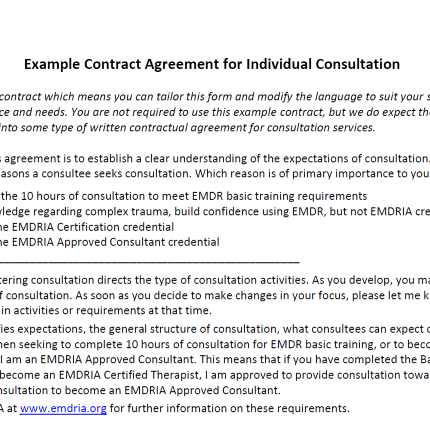Consultation for EMDRIA Certification in EMDR: Best Practices and Challenges
Post-graduate credentials in specific therapeutic models are more common and offer assurance of expertise amid increased globalization.
Learn more in this article by Jennifer A. Madere, MA, LPC-S, Dr. Andrew M. Leeds, Christine Sells, Ph.D., Christopher Sperling, and Michelle M. Browning, LMFT-S.
Article Abstract
“Post-graduate credentials in specific therapeutic models have become more common in recent decades and offer assurance of certain levels of expertise amid increased globalization. Since 1999, the Eye Movement Desensitization and Reprocessing International Association (EMDRIA) and the international EMDR community have worked to establish guidelines and standards for advanced designations in the provision of EMDR therapy. This article focuses on the consultation processes that are outlined in the requirements for clinicians seeking to apply for advanced designations in EMDR therapy. Within the individual and group consultation hours required, consultants operate in several roles, including educator and evaluator, toward addressing the needs of consultees and the requirements put forth by credentialing bodies. The needs of consultees pursuing advanced designations in EMDR therapy include education, documentation of consultation hours and skills attained, and recommendation for the advanced designation. This article provides recommendations and best practices for EMDRIA Approved Consultants who are challenged by the current EMDRIA Certification credentialing process. Challenges with implementation of EMDR Europe’s Accredited Practitioner program are also addressed. Strategies are offered to reduce identified ethical concerns surrounding consultation for advanced designations, and to support the integrity of EMDR therapy as an evidence-based treatment model. Building upon the history of the advanced designations within EMDRIA and EMDR Europe, current requirements and the need for research to inform requirements, explicit guidelines, and objective standards are discussed.”
—Description from publisher
Article Access
Open Access
Madere, J., Leeds, A., Sells, C., Sperling, C., & Browning, M. (2020). Consultation for EMDRIA Certification in EMDR: Best Practices and Challenges. Journal of EMDR Practice and Research, 14(2), 62–75. https://doi.org/10.1891/EMDR-D-19-00052
About the Journal
The Journal of EMDR Practice and Research is a peer-reviewed publication devoted to integrative, state-of-the-art papers about Eye Movement Desensitization and Reprocessing. It is a broadly conceived interdisciplinary journal that stimulates and communicates research and theory about EMDR, and their application to clinical practice. The Journal of EMDR Practice and Research is the Official Publication of the EMDR International Association.
Date
June 1, 2020
Creator(s)
Jennifer Madere, Andrew Leeds, Christine Sells
Contributor(s)
Christopher Sperling, Michelle Browning
Practice & Methods
Your EMDR Practice
Extent
14 pages
Publisher
Springer Publishing Company
Rights
Copyright © 2020 EMDR International Association
APA Citation
Madere, J., Leeds, A., Sells, C., Sperling, C., & Browning, M. (2020). Consultation for EMDRIA Certification in EMDR: Best Practices and Challenges. Journal of EMDR Practice and Research, 14(2), 62–75. https://doi.org/10.1891/EMDR-D-19-00052
Series
14
Installment
2
Audience
Consultants/Consultees
Language
English
Content Type
Peer-Reviewed
Original Source
Journal of EMDR Practice and Research
Access Type
Open Access





